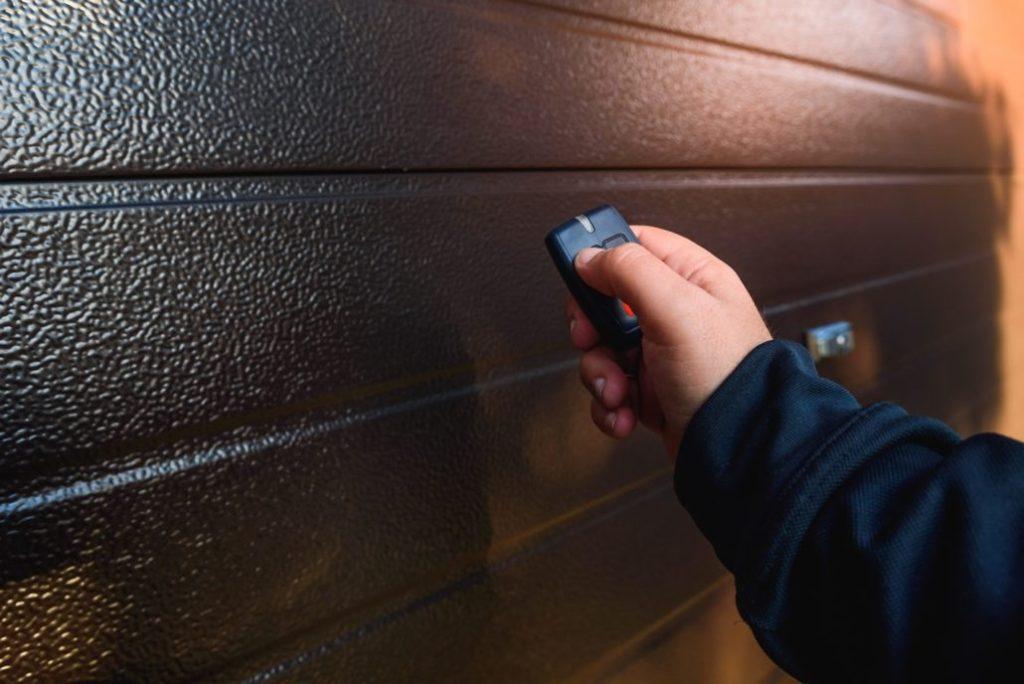In today’s world, where home security is of utmost importance, our garage door openers play a vital role in keeping our homes safe. However, a growing concern has emerged: stolen garage door openers. This article aims to shed light on the issue, helping you understand the risks associated with stolen garage door openers and providing practical guidance to protect your home and ensure your security.

Understanding Stolen Garage Door Openers
A stolen garage door opener refers to the unauthorized possession of your garage door opener by an individual or a group. Thieves employ various methods to steal these devices, such as breaking into cars, homes, or even using sophisticated scanning technology. The consequences of a stolen garage door opener can be severe, compromising the security of your home and leaving you vulnerable to theft or other potential dangers.
Recognizing the Signs of a Stolen Garage Door Opener
It is crucial to recognize the signs that your garage door opener has been stolen to take immediate action. If you notice a missing or misplaced opener, unfamiliar remotes or keychain devices, or observe any suspicious activities near your garage, these could be indicators of a stolen garage door opener.
Potential Dangers of a Stolen Garage Door Opener
The risks associated with a stolen garage door opener are significant. Unauthorized individuals gaining access to your home can lead to burglaries, break-ins, and potential harm to you and your family. Moreover, a stolen garage door opener may provide criminals with an opportunity for identity theft or personal harm.
Preventing Garage Door Opener Theft
To safeguard against garage door opener theft, several preventive measures can be implemented:
- Choose a secure location for storage: Store your garage door opener in a secure place inside your home, away from windows or any visible locations.
- Utilize keychain remotes or smartphone apps: Consider using keychain remotes or smartphone apps as alternatives to handheld garage door openers. These provide convenience and reduce the risk of theft.
- Install a secure garage door opener system: Opt for a garage door opener system with enhanced security features, such as rolling codes or biometric access.
- Regularly change the access code and remote settings: Periodically update your garage door opener’s access code and remote settings to prevent unauthorized access.
- Implement additional security measures: Enhance your garage’s security by installing security cameras, alarms, or motion sensors to deter potential intruders.
- Educate family members and neighbors: Educate your family members about the importance of garage door opener security. Also, inform trusted neighbors about the incident and encourage them to be vigilant.
What to Do If Your Garage Door Opener Is Stolen
If you discover that your garage door opener has been stolen, take immediate action to mitigate the risks:
- Report the incident to the authorities: Contact your local law enforcement agency and provide them with the necessary details regarding the stolen garage door opener.
- Contact the manufacturer: Reach out to the manufacturer of your garage door opener for assistance or replacement options. They can help deactivate the stolen device and provide guidance on securing your home.
- Ensure home security: While resolving the issue, take steps to secure your home, such as reinforcing doors, upgrading locks, or considering a temporary alternative for accessing your garage.
Frequently Asked Questions
FAQ 1: Can I disable my stolen garage door opener remotely? Yes, some modern garage door opener systems offer remote disabling options. Check the user manual or contact the manufacturer for guidance on remotely disabling your stolen garage door opener.
FAQ 2: Should I change my garage door opener access code after it’s been stolen? Absolutely. Changing the access code is crucial to prevent unauthorized access. Refer to the manufacturer’s instructions on how to reset the access code or consult a professional for assistance.
FAQ 3: Are there any insurance policies that cover stolen garage door openers? Insurance coverage for stolen garage door openers can vary. Review your home insurance policy or contact your insurance provider to inquire about coverage for stolen garage door openers.
FAQ 4: How can I make my garage door opener more secure? To enhance the security of your garage door opener, follow the preventive measures mentioned earlier. Additionally, consider consulting a professional locksmith or security expert for personalized recommendations.
FAQ 5: Can I track the location of my stolen garage door opener? Most traditional garage door openers do not have built-in tracking capabilities. However, there are advanced systems available that offer tracking features. Consider upgrading your system if tracking is a priority.
FAQ 6: Should I inform my neighbors about the stolen garage door opener? Informing your trusted neighbors about the stolen garage door opener can help create a sense of community security. They can be extra vigilant and report any suspicious activities around your property.
Conclusion
The theft of a garage door opener poses a significant threat to the security of your home. By understanding the risks associated with stolen garage door openers and implementing preventive measures, you can ensure the safety of your loved ones and protect your property. Stay proactive, follow the recommended security practices, and remain vigilant to maintain a secure home environment. Remember, your actions today can help deter potential burglars and safeguard your peace of mind.



Leave a Reply